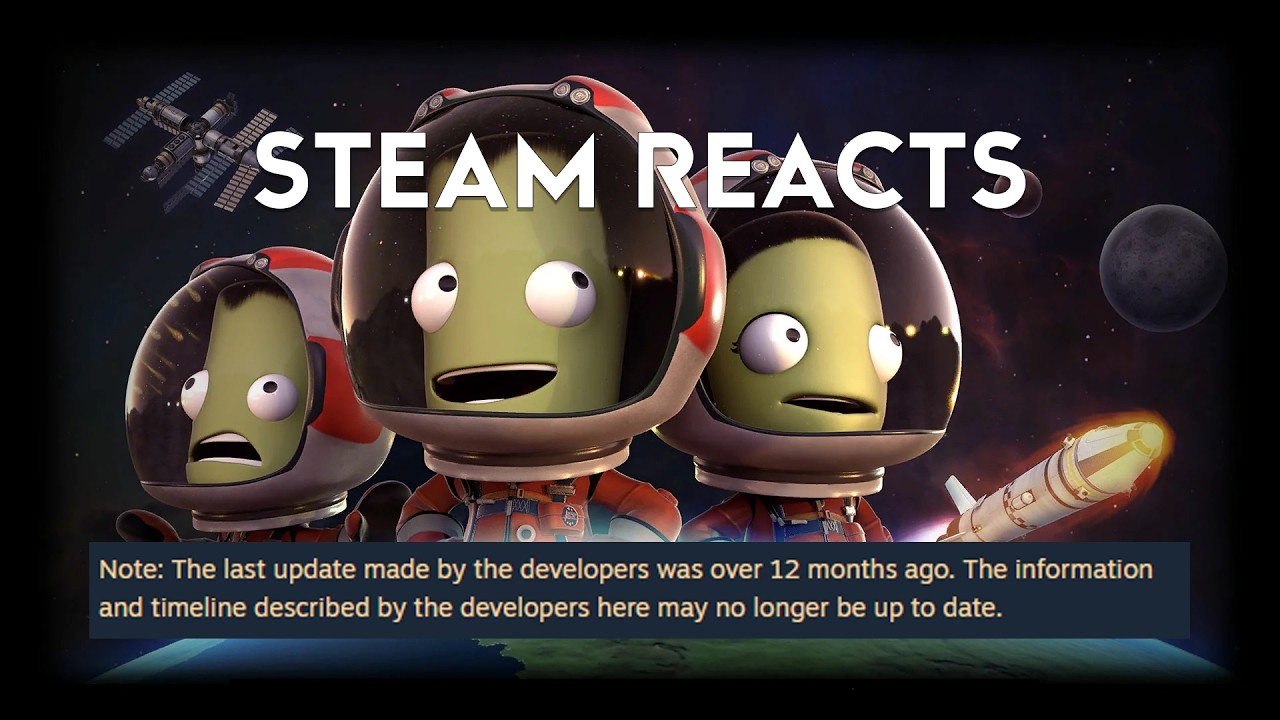Kerbal Space Program 2 has been flagged on Steam due to over a year without updates, causing frustration among players who feel the game is abandoned despite still being sold for $50. The game’s development is uncertain following publisher changes and lack of communication, damaging community trust, while the original Kerbal Space Program remains popular and active.
Kerbal Space Program 2 (KSP2) has been flagged on Steam due to a lack of updates for over a year, following Valve’s new early access transparency policy introduced in early 2025. This policy mandates that if an early access game goes more than 12 months without a new build or developer announcement, a cautionary note is added to its store page. As a result, KSP2 now prominently displays this warning, signaling to potential buyers that the game’s development progress has stalled. This has sparked significant frustration and anger within the community, with many players feeling the game is effectively abandoned while still being sold for $50 without refunds available.
The situation is complicated by changes in the game’s publishing rights. Private Division, the original publisher of KSP2, was sold to an investment firm called Havly Investments around late 2024. Subsequently, former employees of Anapeneurist Interactive took over managing the portfolio, including KSP2. The publisher has since been renamed Fictions Inc., which is actively publishing new titles like Lego Party. However, there have been no official updates or announcements regarding KSP2’s development, leaving the game’s future uncertain and the community’s trust deeply damaged.
The lack of communication and updates has led to a breakdown in the early access partnership between developers and players. Many community members openly discuss the possibility that KSP2 may never receive the planned features or further development. The game’s player base has dwindled to around 70 to 100 concurrent players as of mid-2025, reflecting the community’s disappointment. Despite this, the original Kerbal Space Program remains popular, with steady player numbers and ongoing content creation on platforms like YouTube, showing that the franchise itself still holds strong goodwill.
Interest in KSP2, as measured by Google Trends, shows a sharp spike around the game’s initial release followed by a significant decline, though interest has not completely vanished and is slowly beginning to rise again. This suggests that while the sequel’s troubled development has hurt its reputation, the overall Kerbal Space Program franchise continues to maintain a dedicated fanbase. The situation highlights the risks and challenges of early access development, especially when communication and delivery on promises falter.
In conclusion, the KSP2 case serves as a cautionary tale about the importance of transparency, communication, and consistent development in early access games. While Steam’s new warning label is a positive step toward consumer protection, it also underscores the damage done to the game’s reputation and community trust. The original Kerbal Space Program remains a beloved and active title, but the future of KSP2 remains uncertain, pending any new announcements or revival efforts from its current publishers.
